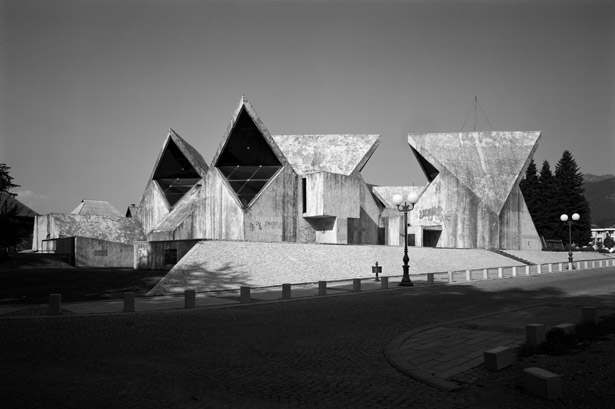Media : 193238:
'via Blog this'
AH experiments... painting sculptures
In this experiement, I started by drawing quick lines to represent one of the metal "Abstract Head: Disciple" sculptures. I then used goache for the colour planes, but something was missing. Eventually I realised that I needed to frame (tame) the disorganised forms using a 40cm square. Originally this was a wide charcoal line, but later I preferred the thin ink line. The triptych idea comes through in some of the paintings with the repeated square.
More examples can be seen here:
Link
02-Idris-Khan-at-Sean-Kelly.jpg (600×450)
02-Idris-Khan-at-Sean-Kelly.jpg (600×450):
Idris Khan at Sean Kelly. Photo credit: Marina Galperina
'via Blog this'
Idris Khan at Sean Kelly. Photo credit: Marina Galperina
'via Blog this'
Olafur Eliasson: Your Light House
p14 Richard Dawkins "Bar codes in the sky."
"White light is a scrambled mixture of wavelengths, a visual cacophany. White objects reflect light of all wavelengths but, unlike mirrors, they scatter it into incoherence as they do so. This is why you see light, but not your face, reflected from a white wall."
Olafur Eliasson: Your Light House
Olafur Eliasson: Your Light House: Working With Light, 1991-2004
Olafur Eliasson, Burkhard Breiing
Publisher: Hatje Cantz Publishers
ISBN: 3775714413 Edition: Hardcover; 2004-09-15
"White light is a scrambled mixture of wavelengths, a visual cacophany. White objects reflect light of all wavelengths but, unlike mirrors, they scatter it into incoherence as they do so. This is why you see light, but not your face, reflected from a white wall."
Olafur Eliasson: Your Light House
Olafur Eliasson: Your Light House: Working With Light, 1991-2004
Olafur Eliasson, Burkhard Breiing
Publisher: Hatje Cantz Publishers
ISBN: 3775714413 Edition: Hardcover; 2004-09-15
Wabi-sabi - Wikipedia, the free encyclopedia
Wabi-sabi - Wikipedia, the free encyclopedia: ""Wabi-sabi is the most conspicuous and characteristic feature of traditional Japanese beauty and it occupies roughly the same position in the Japanese pantheon of aesthetic values as do the Greek ideals of beauty and perfection in the West."[1] "if an object or expression can bring about, within us, a sense of serene melancholy and a spiritual longing, then that object could be said to be wabi-sabi."[2] "[Wabi-sabi] nurtures all that is authentic by acknowledging three simple realities: nothing lasts, nothing is finished, and nothing is perfect."[3]"
'via Blog this'
'via Blog this'
Subscribe to:
Posts (Atom)







